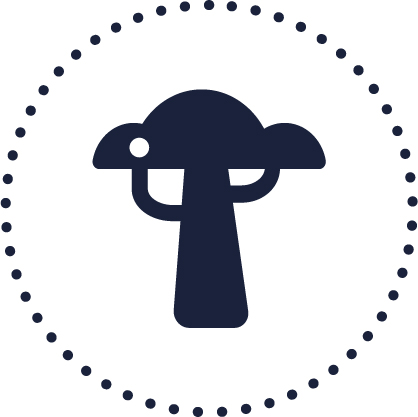Dund ak Kéew bi: Local Governance for Adaptation to Climate Change in 6 communes of the Thiès Plateau
SUCO focuses on local environmental governance by supporting capacity building of communes and communities in environmental management and in the fight against climate change: lasting improvement of environmental conditions in the 6 communes of the Thiès Plateau in Senegal.







Overview of the project
This lasting sustainable environmental improvement is demonstrated by the achievement of three results:
- Improved environmental governance at the local level, which has resulted, among other things, in the inclusion of participatory planning processes and strengthened capacities in the management of environmental plans;
- The capacities of local elected officials and populations have been strengthened through the implementation of concerted and inter-sectoral actions, and climate chance adaptation and mitigation measures;
- The resilience of the environment has been improved by reconciling the preservation of the environment and the exercise of economic activities.
The lasting improvement of the environmental conditions of 6 communes of the Thiès Plateau.
Ongoing research
10/01/2017 - 03/31/2021
Governance:
- 6 created, and functional steering committees
- 6 created or revitalized associations of women’s groups
- 6 developed, and implemented climate change action plans
- 6 updated communal environmental action plans (PCAE)
Forestry :
- 26 village forest nurseries installed or reinstalled, and approximately 70,000 plants produced in 2018, 2019 and 2020
- Planting of 19,584 trees (village woods, classified forests, schools, public squares, etc.), with relatively high survival rates ranging from 44 to 80%; except in Fandène (15%) and Bandia (05%)
- Creation/reinforcement of 4 village woods created and/or reinforced for women
- 8 village woodlots of about 0.5 to 01 ha fenced with wire mesh
Assisted natural regeneration (ANR):
- 123 farmers trained on assisted natural regeneration (ANR), and supported with equipment
- 7,931 trees protected with ANR on an area of approximately 199 hectares
Energy management:
- 102 people (96 women and 06 men, including 05 young people,) trained in the manufacture of improved stoves
- 1,800 jambar stoves distributed to women
Development of micro-gardening
- 4 trainings on micro-gardening were given
- 74 people trained on micro-gardening: 69 women (including 21 youths) and 5 men (including 1 youth)
Waste management :
- 1 garbage management guide developed in a participatory and inclusive manner, and validated
- Six communes organized in waste management, and supported with proper materials
- Capacity building of the project implementing partner’s team (GRAIM) on: project management, development of project management and financial management tools, environmental and social impact assessments (ESIA) of environmental projects, climate change, etc.
- The development and use of tools for planning, and monitoring project activities, including a participatory process map, a steering committee scorecard, and a sequential work planning structure, to be used by GRAIM staff, and steering committees at the commune level
- Participation of women, and recognition of their contribution to natural resource management by municipal authorities
- Dynamism/functionality of the steering committees in the implementation of the project
- The strengthening of social cohesion, the pacification of relations and the establishment of a climate of trust between farmers and herders, or between herders and water and forestry agents, thanks to the consultation and communication mechanism put in place by the DAK project, which is also among the innovative results attributed to the project. Indeed, the consultation frameworks, and the various meetings between institutional actors (decentralized technical services, local elected officials, administrative and local authorities), and community actors (members of GPFs, herders’ associations, producers, community leaders, etc.) have enabled these various stakeholders to exchange, communicate and better understand each other. The fact that herders and water and forestry agents sit at the same meeting table, or meet on a radio show has helped to dissipate mutual distrust and improve relations between these actors, who often had conflicting relationships around the issue of natural resource conservation. In addition, local leaders have accompanied and supported the project’s beneficiaries.
3 main funding contributors: The Government of Quebec, the FAO, and the Ron Calli International Foundation
organisation
SUCO is an international cooperation organization based in Montreal since 1961. It brings together people, knowledge and resources to empower individuals, organizations, communities, and to concretely improve their social, economic and environmental conditions. SUCO currently works in Canada, Benin, Burkina Faso, Haiti, Honduras, Nicaragua, Peru, and Senegal.
Faced with the urgency of a real socio-ecological transition, SUCO is working on several crucial issues. Rural populations are particularly vulnerable, so SUCO works to increase their resilience to climate change through concrete and innovative solutions. It also supports the development of sustainable food systems that meet human nutritional and economic needs, while respecting ecosystems. Keeping with the objective of equality and of lasting changes, SUCO approaches the reality of women in a differentiated way, and develops adapted solutions with them. It establishes conditions that ensure respect for the rights and participation of women in the development of solutions, and in the benefits derived from them.
in collaboration
Three actors are behind this project: GRAIM, a Senegalese non-profit organisation; SUCO, a Canadian non-profit organisation; and FAO Senegal through the Food Security Adapted Agriculture project (SAGA).
GRAIM is an organisation created in 1997 with a strong presence in the Thiès region. It has expertise in environment and natural resource management, social protection, organisational development as well as economic development, and inequality reduction. In particular, GRAIM is the initiator and author of the Plans communaux d’actions pour l’environnement (PCAE), which were drafted following a participatory diagnostic process, and which aim to support communes in identifying and implementing actions in response to environmental issues. GRAIM’s roles and responsibilities in the project include implementation, setting up environmental action implementation committees, and providing technical support to these committees.
SUCO is a Canadian non-profit organisation founded in 1961. It is an international cooperation organisation that is particularly active in agri-environment, sustainable agriculture and local development. It supports communities through voluntary cooperation programmes and the implementation of projects aimed at enabling populations to acquire knowledge, skills and abilities that will enable them to better control their socio-economic future. SUCO focuses on learning by doing, and on participation to enable people to value and enrich their knowledge and skills. It advocates capacity building of the population to achieve sustainable results. It has been present in Senegal since 2012 and has been a partner of GRAIM since 2016. SUCO’s roles and responsibilities in the project are to ensure links with donors, to support GRAIM in the implementation of the project through the sending of volunteers and to provide advisory support to GRAIM in different sectors (project management, gender equality, environment, sustainable agriculture, capitalisation).
This initiative is part of the FAO’s SAGA project. Implemented by the FAO, and made possible by the technical and financial support of the Government of Quebec, this project supports adaptation to climate change in the agricultural sectors of two particularly vulnerable French-speaking countries, Senegal and Haiti. Based on a multi-stakeholder, multi-sector and multi-scale approach, the SAGA project mobilises governmental, research and civil society actors to plan a resilient and productive agriculture for food security and nutrition.






